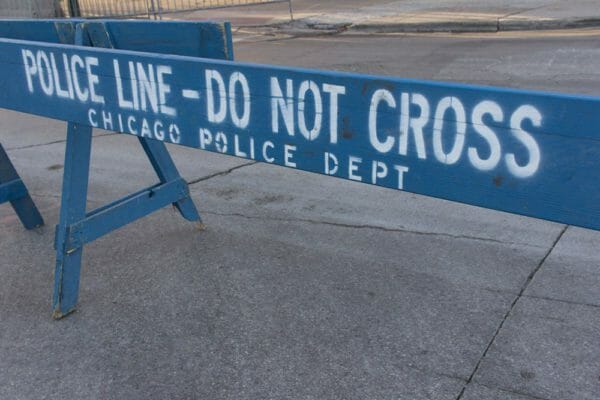
Chicago, desperate to do something to try to diminish the violent crime that is ravaging the city, has turned to programs that are not your traditional law enforcement approach to try to help stem the tide. But if the recent Memorial Day weekend is any indication, not only are the programs not working, but one may be contributing to the problem, at least in one apparent incident.
One aspect of the Chicago experiment to try to get a grip on the Windy City’s devastating violent crime, as reported by the Chicago Sun-Times, is “hiring residents who are found to be most likely to be shot, or shoot others,” and pay them “$100 daily stipends” to act as “peacekeepers.” The idea, presumably, is these individuals—sometimes referred to as “violence interrupters”—know their neighborhoods, know the bad actors (and often once were the bad actors), and may be able to identify and intercede if there is any threat that a violent incident may be about to take place.
Unfortunately, one “peacekeeper” appears to have continued his violent ways, rather than embrace peace.
Several media reports relate that a man named Oscar Montes was arrested and charged with aggravated battery, robbery, and vehicular invasion. Allegedly, Montes “was in a group of seven or eight people that pulled a man from a car and punched and kicked him on the ground in the 2300 block of South Washtenaw Avenue, (Chicago).” When responding to the crime scene, police reported “they saw Montes walking away and trying to take off a neon vest that read ‘peacekeepers.’”
Montes was released last May after serving a decade in jail for aggravated discharge of a firearm, although that conviction was the result of a plea deal, after he had originally been charged with attempted murder.
The premise of the whole “peacekeeper” program may be that those hired for the role likely have a criminal past, but as the case of Oscar Montes seems to indicate, the vetting process to ensure future “peacekeepers” have truly abandoned their criminal ways is in need of being refined.
Whether or not the “peacekeeper” plan, or other non-traditional crimefighting programs, will work in the long term remains to be seen, but this past Memorial Day weekend set a very bad precedent.
Firearm-related violence that involved individuals who were actually shot showed no signs of abating. The holiday weekend saw nearly 60 individuals shot, with 11 of them killed. That, according to the Chicago Sun-Times, makes it the “most violent Memorial Day weekend in 7 years.” And that does not take into account other violent crimes, such as the one Montes is accused of committing.
Chicago’s new mayor, Brandon Johnson (D), rightly called the staggering number of shootings “intolerable.” Johnson, who helped unseat former mayor Lori Lightfoot (D) in elections earlier this year, is a proponent of the “peacekeeper” program, along with other efforts to try to stem the tide of crime in his city through programs that do not involve actual law enforcement.
He pumped about $2.5 million into various organizations to promote local activities that, apparently, are intended to get people who might be considering a life of violent crime to instead take part in more neighborly behavior. The allure of local barbecues and sporting events may entice some to abandon criminal activity, but only time will tell if it will have a discernable impact to reduce the crime wave in Chicago.
One former Chicago law enforcement officer, Anthony Riccio, questioned the efficacy of Johnson’s programs, stating, “I think a lot of officers would prefer that money be spent other ways. … I’d rather have two police officers than 30 violence interrupters any day of the week.”
Ultimately, Chicago may be better served by using proven techniques for reducing violent crime. President Donald Trump and his Attorney General, William Barr, tried to help Chicago in 2020, with some success. Using the tried and true method of actually arresting and prosecuting violent criminals, things looked to be turning around. But with Trump and Barr no longer around to use federal resources to help crime-ridden Chicago, and the new regime in the White House more interested in playing politics than fighting crime, crime returned to surging, and doesn’t seem to be slowing down.
About NRA-ILA:
Established in 1975, the Institute for Legislative Action (ILA) is the “lobbying” arm of the National Rifle Association of America. ILA is responsible for preserving the right of all law-abiding individuals in the legislative, political, and legal arenas, to purchase, possess, and use firearms for legitimate purposes as guaranteed by the Second Amendment to the U.S. Constitution. Visit: www.nra.org

from https://ift.tt/UJsfkQr
via IFTTT

No comments:
Post a Comment